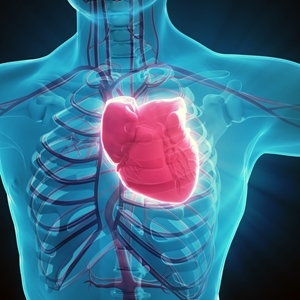As travel nursing professionals know, the heart is the engine of our bodies. It powers everything we do, providing necessary nutrients to muscles and organs like the brain. While a healthy mind and strong heart have always been intimately related, new research indicates that young adults with healthy blood pressure have better thinking and memory skills later in midlife than those with higher blood pressure.
Previous studies have relied on single assessments of cardiovascular risk factors that may not accurately reflect long-term exposure. They have also connected poor fitness and heart health in middle age to declining mental function and dementia around age 70 or 80, but this new study suggests the relationship begins much earlier. People as young as 18 years old are now affected by cardiovascular risk factors, including high blood pressure, tobacco use, increased blood glucose (diabetes), physical inactivity, unhealthy diet, cholesterol and obesity.
"We know these risk factors are important later in life but what is new is that they seem to be important for cognitive health even going from young to mid adulthood," lead author Dr. Kristine Yaffe of the University of California, San Francisco, told Reuters Health. "This is the first time anyone has shown this."
For the study, researchers from UCSF followed 3,381 young people who were initially ages 18 to 30, for 25 years. Every two to five years the subjects were evaluated for blood pressure, blood glucose and cholesterol levels.
At the 25-year mark, each participant underwent three tests meant to assess memory and learning, brain aging and decision processing speed. The study took into account people's height, weight, age, smoking status, alcohol use, race and education.
Heart and brain performance
The results showed that both higher blood pressure readings and high blood glucose levels early in life were associated with worse performance on all three mental function tests. Notably, people who qualified as diabetic did not perform as well on the tests as those without diabetes, according to the research, published in the journal Circulation.
Participants with higher cholesterol scored lower on the learning and memory test, though there was no difference in their performance on the brain aging test or the processing speed test.
So, what is healthy blood pressure? The American Heart Association recommends a blood pressure of less than 120/80 mm Hg (the top number is the systolic pressure reading and the bottom number is the diastolic pressure reading). Your blood pressure rises with each heartbeat and falls when your heart relaxes between beats. Those working travel nursing jobs for medical staffing agencies should advise patients to get a blood pressure screening at their regular healthcare visits or once every two years, if their blood pressure is considered normal.
In the study, when patients had two or more of the risk factors from early to mid-adulthood, especially above recommended guidelines, they tended to have worse cognition in mid-life. Though the differences in cognition were small, the key question here is whether this is the beginning of something later, Yaffe said.
Dr. Jennifer G. Robinson, who studies cardiovascular disease and aging at the University of Iowa, agrees that the study offers small yet powerful findings.
"I find it fascinating because we know that midlife risk factors predict late life cognitive decline, but this is the first study to push it back even further," Robinson told Reuters. "We're finding subtle changes early that have cumulatively negative effects."
Almost everyone knows that a healthy diet and regular exercise, which keep the heart healthy, are good for you. With this new information, travel nurse professionals can advise patients that the younger, the better to establish workout habits.

